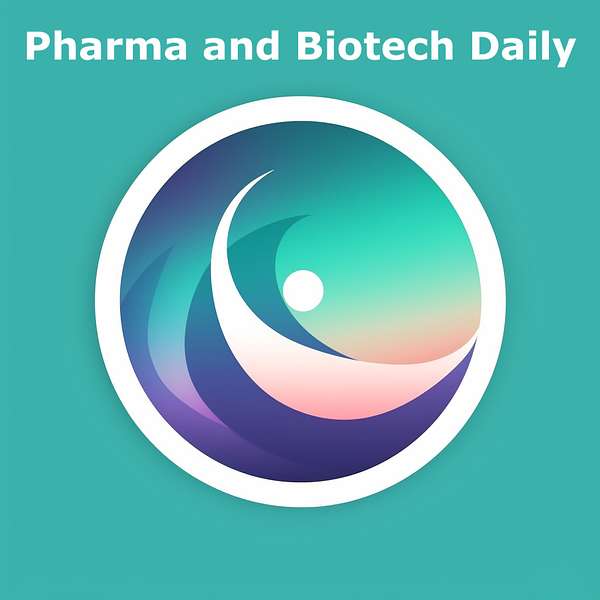
Pharma and BioTech Daily
This podcast aims to bring you a daily summary of the most relevant news in Pharma and BioTech. Check our website at: https://www.buzzsprout.com/2189790
Pharma and BioTech Daily
Pharma Shifts: Dual-Action Obesity Drugs & Regulatory Waves
•
Pharma Daily
•
Season 1
•
Episode 545
Good morning from Pharma Daily: the podcast that brings you the most important developments in the pharmaceutical and biotech world. Today's focus is on a series of significant advancements that are poised to reshape the landscape of drug development, regulatory standards, and patient care.Eli Lilly has made remarkable strides with its dual-action obesity medications, Zepbound and Mounjaro. Despite being removed from the CVS formulary, these drugs have achieved exceptional sales figures, reaching $10 billion in a single quarter. This success can be attributed to Lilly's innovative direct-to-consumer sales strategy, which exemplifies how modern marketing approaches can overcome traditional market barriers. Additionally, Eli Lilly’s partnership with Walmart to expand access to Zepbound through retail pharmacy pickups exemplifies a strategic approach to enhancing patient access to crucial medications. By leveraging Walmart's extensive retail network, this collaboration facilitates easier access to obesity treatments—a significant public health challenge—enhancing both patient convenience and broadening market reach for Lilly’s products. These achievements not only highlight the potential of strategic marketing but also underscore a growing demand for effective obesity treatments within the pharmaceutical industry.In another exciting development, Alnylam Pharmaceuticals has reported impressive sales figures for Amvuttra, a treatment for transthyretin amyloid cardiomyopathy. Surpassing analysts' expectations, this success signals a growing market for treatments targeting rare diseases and emphasizes the importance of strategic market expansion to reach underserved patient populations.Meanwhile, Bristol Myers Squibb's anticipated schizophrenia treatment, Cobenfy, has experienced a lukewarm market entry. While meeting initial expectations in its first year, it has yet to create the breakthrough impact investors anticipated. This situation highlights the challenges even well-hyped pharmaceuticals face upon launch and underscores the need for continuous strategic planning to ensure market penetration and sustained growth.A surprising development in mergers and acquisitions comes from Novo Nordisk's $6.5 billion counteroffer to acquire Metsera, an obesity biotech initially targeted by Pfizer. This aggressive move reflects intense competition in the obesity drug market and illustrates the high stakes involved in acquiring promising biotech assets that could potentially transform treatment paradigms for chronic conditions like obesity.The vaccine industry is navigating its own set of challenges with declining sales across the board. However, Merck's adult pneumococcal vaccine Capvaxive has shown promising initial sales figures. As the first pneumococcal vaccine specifically designed for adults, Capvaxive indicates a potential niche market that Merck could successfully capture.On the regulatory front, significant measures are being taken by the FDA to boost biosimilar availability against drug pricing pressures. New draft guidance aims to eliminate clinical testing requirements for biosimilars and categorize all approved biosimilars as "interchangeable." This initiative could significantly reduce biologic medicine costs post-patent expiration and increase competition in the market, potentially making essential medications more accessible to patients. Additionally, the FDA is proposing streamlined biosimilar approval pathways aimed at reducing overall bio-drug costs—a welcome move reflecting concerted efforts to make essential medications more affordable and accessible globally.Argenx has reported positive trial results for Vyvgart in treating generalized myasthenia gravis (gMG), highlighting its commitment to addressing unmet needs within this patient population. These findings could expand treatment options for gMG patients who have been previously overlooked in th